PROLH210 Portable Leeb Hardness Tester
10000 INR/Unit
Product Details:
- Application Industrial
- Product Type PROLH210 Portable Leeb Hardness Tester
- Weight 220 Grams (g)
- Temperature 15 to 35 Celsius (oC)
- Material Mild Steel
- Color Black
- Click to View more
X
PROLH210 Portable Leeb Hardness Tester Price And Quantity
- 10000 INR/Unit
- 1 Unit
PROLH210 Portable Leeb Hardness Tester Product Specifications
- Mild Steel
- 15 to 35 Celsius (oC)
- 220 Grams (g)
- Black
- Industrial
- PROLH210 Portable Leeb Hardness Tester
PROLH210 Portable Leeb Hardness Tester Trade Information
- 100 Unit Per Week
- 1 Week
Product Description
PROLH210 Portable Leeb Hardness Testers are used to determine one of a material's critical mechanical properties, hardness. Hardness testing can be performed with either classic desk-mounted testers or with the more modern portable testers. The reliability and accuracy of static and portable hardness testers are investigated in this study. Our leeb hardness testing device range describes four unique methods for determining the hardness of calibration hardness plates. To determine measurement accuracy, hardness values were contrasted to the reference hardness specified on the calibration hardness plates. The study compared the reliability and accuracy of portable hardness testers to those used on desks.
- Portable Leeb Hardness Tester PROLH210
- Model No. PRLH210Dimensions (mm) 155x77x35Weight 220g(Main Unit + Impact Device Type D)Warranty 12/months
- Based on Leeb (HL), Converted to Vickers (HV), Brinell (HB), Rockwell (HRC and HRB), Shore (HS) and tensile strength (MPa).
- 6 hardness scales, each scale can be calibrated independently. Automatic identification of the impact device.
- Compatible with multiple impact devices, 7 different Impact devices optional. 128×64 Dot Matrix LCD Display with backlights& contrast adjustable.
- To derive the testing data easily by the special PC software.
- Preset measurement times (1-32) to calculate the average value automatically.
- Preset Lower and upper limit.
- Automatic power off.
- Testing Range 170-960HLD
- Min. Reading 1HLD, 1HV, 1HB, 0.1HRC, 0.1HRB, 1HS, 1Mpa
- Hardness Scales HL, HRC, HRB, HV, HB, HS
- Testing Range +-6HLDwhen HLD=760+/-30;
- Min.Reading Leeb, conversion hardness, material, impact direction, test times, average value, time
- Hardness Direction 360 Degreedown, inclined down, level,inclined up and up
- Memory 100 groups of testing results
- Power Supply 3×1.5V AAA batteries
- Weight 220g (Main Unit + Impact Device Type D)
- Dimensions in mm 155x77x35
- Standard Delivery
- Main Unit 1 pc
- Impact Device D 1 pc
- Cleaning Brush 1 pc
- Small Support Ring 1 pc
- Battery 1.5V AAA 3 pcs
- Hardness Test Block 1 pc
- Manual 1 pc
| Display Type | Digital LCD display 1.9inch X1.46inch with backlight |
| Model | PROLH210 |
| Display Type | Digital |
| Supply | DC |
| Brand | DC |
| Supply | PRO ENGINEERS |
| Battery Type | 1.5V AAA |
| Portable | Portable |
| Condition | New |
| Minimum Order Quantity | 1 Piece |
PROLH210 Portable Leeb Hardness Testers Specifications:
1. Dimension: 155x77x35 mm
2. Display Type: Digital
3. Model: PROLH210
4. Weight: 220 g
5. Warranty: 12 Months
6. Humidity: 90%
7. Temperature: 15 to 35 Degree
8. Automation Grade: Semi-automatic
Leeb Hardness Tester FAQ:
Q. What is a Leeb hardness testind device?
Ans: A Leeb hardness tester is a portable device used to measure the hardness of metals. It operates based on the rebound principle, where a small, hard indenter is propelled against the surface of the material under test. The rebound velocity is measured and converted into a hardness value.
Q. How does a Leeb hardness tester work?
Ans: When the impact body of the tester strikes the surface of the material, it rebounds back, and the device measures the velocity of this rebound. This velocity is then converted into a hardness value using calibration curves specific to the material being tested.
Q. What are the advantages of using a Leeb hardness tester?
Ans: Below are some of it's advantages
a. Portability: Leeb hardness testers are usually handheld and battery-powered, making them suitable for use in various locations.
b. Quick results: Measurements can be taken rapidly, allowing for efficient testing in different areas.
c. Non-destructive: Unlike some other hardness testing methods, Leeb testing does not typically damage the material being tested.
d. Suitable for various materials: Leeb hardness testers can measure the hardness of metals, including steel, aluminum, and other alloys.
Q. What are the limitations of Leeb hardness testers?
Ans: Below are some of it's limitations:
a. Surface finish: The surface finish of the material being tested can affect the accuracy of measurements.
b. Calibration: Proper calibration is essential for accurate results, and different materials may require specific calibration curves.
c. Material thickness: The thickness of the material can impact the accuracy of measurements, particularly for thin materials.
d. Anisotropic materials: Leeb hardness testers may not be suitable for measuring the hardness of materials with varying properties in different directions.
Q. How do I calibrate a Leeb hardness tester?
Ans: Calibration typically involves using reference blocks with known hardness values that are similar to the material being tested. The device is adjusted to match the readings obtained from the reference blocks, ensuring accurate measurements.
Q. Can a Leeb hardness tester measure the hardness of welds?
Ans: Yes, Leeb hardness testers can measure the hardness of welds. However, it's essential to consider factors such as surface preparation and the presence of heat-affected zones, which can affect the accuracy of measurements.
Q. Are there different types of Leeb hardness testing device?
Ans: Yes, there are various models and brands of Leeb hardness testers available, ranging from basic handheld devices to more advanced models with additional features such as data logging and wireless connectivity.
Enter Buying Requirement Details
 English
English Spanish
Spanish French
French German
German Italian
Italian Chinese (Simplified)
Chinese (Simplified) Japanese
Japanese Korean
Korean Arabic
Arabic Portuguese
Portuguese
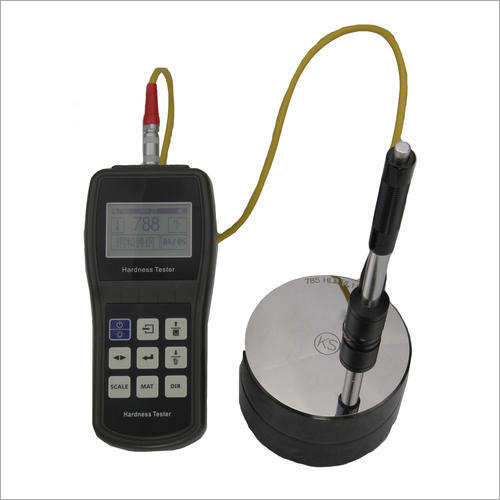
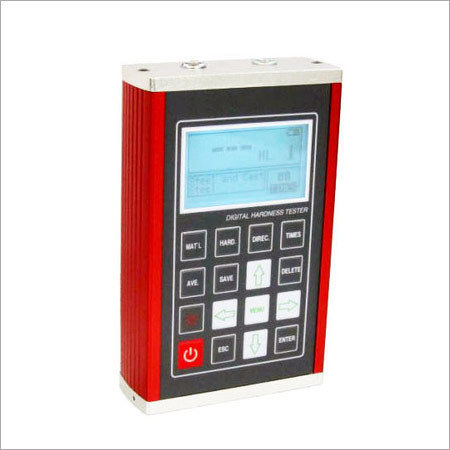
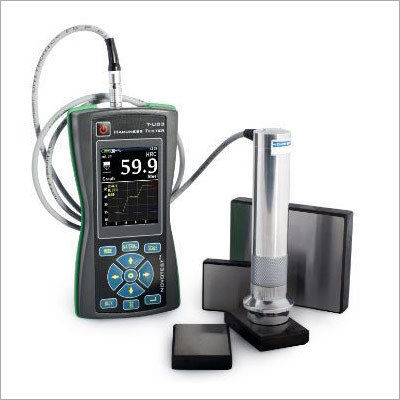
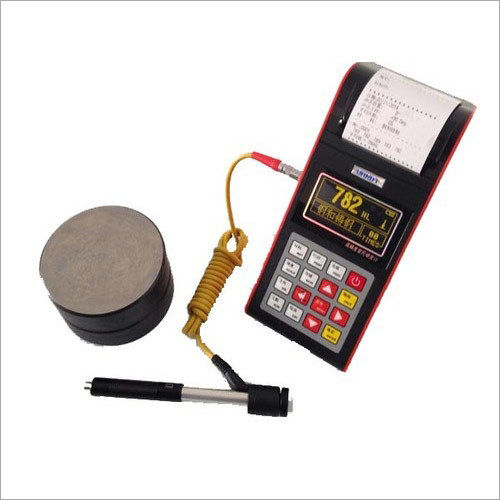
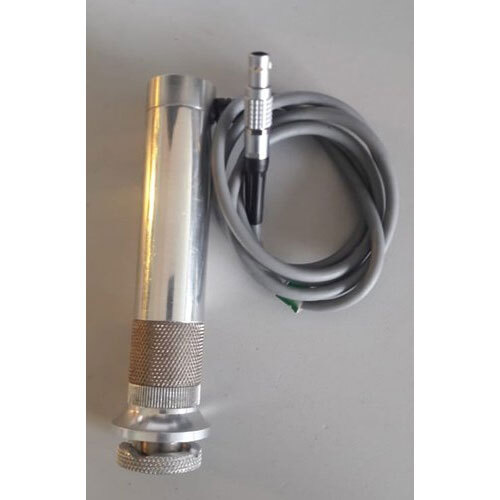
 Call Me Free
Call Me Free